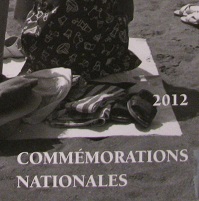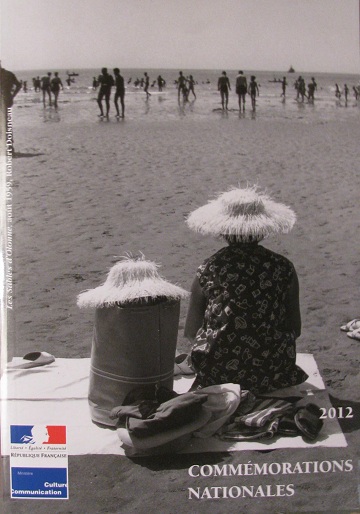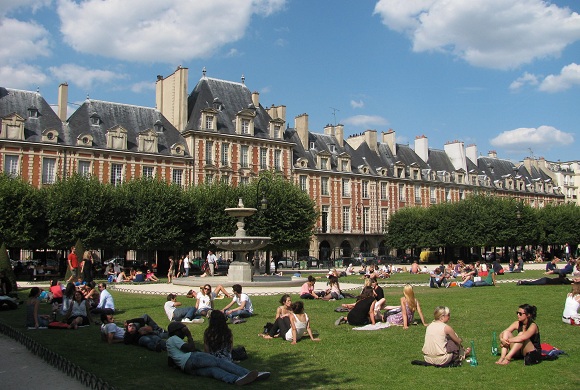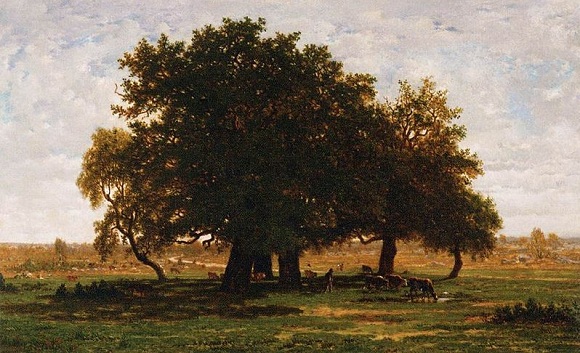
Every year the National Archives of France selects dozens of events of historical significance to highlight as national commemorations on the occasion of some multiple of their centennial or semicentennial.
This year’s crop of celebrations goes from the 1800th anniversary of the edict granting Roman citizenships to all the inhabitants of the Roman Empire (including Gaul) to the 50th anniversary of the referendum for the election of the French president through universal suffrage, by way of the 600th anniversary of the birth of Joan of Arc and the 250th anniversary of the opening in Lyon of the world’s first veterinary school, along with more than 60 other notable anniversaries.

Notable? Certainly not to top-10 minded travelers and even to most French.
Nevertheless, taken together these historical markers give fascinating insights into the memory of France and, at least in an academic sense, to its national identity. Well-educated French love to hear and read about their history. Historians are literary stars here; academiciens, as members of the prestigious Académie Française are called, pen 500-page tomes that get read at the beach; museums jump at the chance to dust off art and craftwork and documents in their tremendous reserves to celebrate an anniversary.
So even without going into details about this year’s commemorations, it’s worth considering what the very serious “Mission for National Commemorations” deems memorable. And since such recognition typically leads to funding from local, regional and national government toward the mounting of cultural events and exhibits, you may well encounter exhibitions or concerts or special events honoring these centennials and semicentennials as you travel and read about France this year.
Here are some of the events that have been selected for national commemoration in 2012.
Year: Event
212: Edict granting Roman citizenships to all the inhabitants of the Roman Empire, including Gaul.
512: Death at age 89 of Saint Geneviève, for Catholics the patron saint of Paris. Her sarcophagus (emptied of her remains during the French Revolution) is found in a chapel at Saint-Etienne-du-Mont Church in Paris, behind the Pantheon.
1412: Birth of Joan of Arc / Jeanne d’Arc in Domrémy, a village on the eastern edge of the kingdom. She was burned at the stake in Rouen (Normandy) in 1431.
1512: Beginning of the creation of the celebrated Issenheim altarpiece, painted by Matthais Grünewald. The altarpiece is the main draw to Colmar’s Unterlinden Museum. The commemoration of this anniversary is less revealing of national character (Grünewald was, after all, German) than the polemic surrounding its restoration and plans to move it to a new extension of the museum in 2013.
1612: Birth of architect Louis Le Vau, one of the prime forces of French classicism, the architectural style of Louis XIV. Among his works: the Hotel Lambert (mansion on Ile Saint Louis in Paris), the chateau Vaux-le-Vicomte, a portion of Versailles, and the building that is now the French Institute. He died in 1670.
1612: Inauguration of the Place des Vosges (originally called the Place Royale) in Paris. It was inaugurated by a parade celebrating the engagement of Louis XIII and Anne, Infanta of Spain. Construction of the square was launched by Louis XIII’s father Henri IV.

1662: Death of Blaise Pascal, philosopher and mathematician, born in 1623.
1712: Marshall Villars led French forces to victory against the Dutch at the Battle of Denain during the exhausting European coalition war—this one pitting France and Spain against Austria, England and Holland—known as the War of Spanish Succession, a war that help bring about an inglorious end to the reign of Louis XIV.
1712: Birth in Geneva of Jean-Jacques Rousseau, philosopher and writer, author of Emile, The Social Contract, Discourse on the Sciences and Arts, and Confessions. The Rhone-Alpes region (Lyon, Annecy, Chambery) is celebrating the 300th anniversary of the birth of this giant of the Enlightenment (died in 1778) and the 250th anniversary of the publication of Emile and of The Social Contract with various exhibitions and events.
1762: Opening in Lyon of the world’s first veterinary school.
1812: Birth of the artist Theodore Rousseau, cofounder of the Barbizon School that preceded the Impressionist period. He died in 1867.

1862: Publication of Victor Hugo’s Les Misérables.
1862: Birth of the composer Claude Debussy (died 1918) and of the playwright Georges Feydeau (died 1927).
1862: Measurement (slightly modified since) of the speed of light by Léon Foucault (1819-1868), who is also famous for his pendulum providing visual evidence of the earth’s rotation, a version of which can still be seen at the Pantheon in Paris.
1862: Creation of the National Museum of Antiquities in the Chateau of Saint-Germain-en-Laye, a former royal residence just west of Paris.
1912: Birth of Abbé Pierre (né Henri Grouès), a Catholic priest, founder of Emmaus, an association promoting solidarity with and assistance for the poor. He died in 2007. The Emmaus International Movement now consists of 317 working in 36 countries, including 185 in France, 15 in the United Kingdom, and two in the United States.
1912: Birth of the novelist Pierre Boulle (died 1994). Though his name is largely unknown, movie adaptations of two of novels were major hits: The Bridge Over the River Kwai and The Planet of the Apes.
1912: Treaty of Fez makes Morocco a French protectorate. The treaty was eliminated in 1956 when France recognized the independence of Morocco.
1912: Birth of the actor and director Jean Vilar, creator of the Avignon Theater Festival (1947). He died in 1971.
1912: Birth of the photographer Robert Doisneau, whose 1959 picture of a beach scene at Les Sables d’Olonne graces the cover of this year’s directory of national commemorations (shown above). He died in 1994.
1962: Release of Francois Truffaut’s film Jules et Jim starring Henri Serre, Oscar Werner and Jeanne Moureau.
1962: End of the War in Algeria and recognition of Algerian independence.
1962: Referendum on the election of the President of the Republic by universal suffrage, meaning direct election by the people, as opposed to the system then in force of having the president elected by an electoral college comprised of about 80,000 elected officials. The referendum was passed with oui votes from 61% of voters.
A full list in French of National Commemorations for 2012 in France can be found here.
(c) 2012, Gary Lee Kraut

